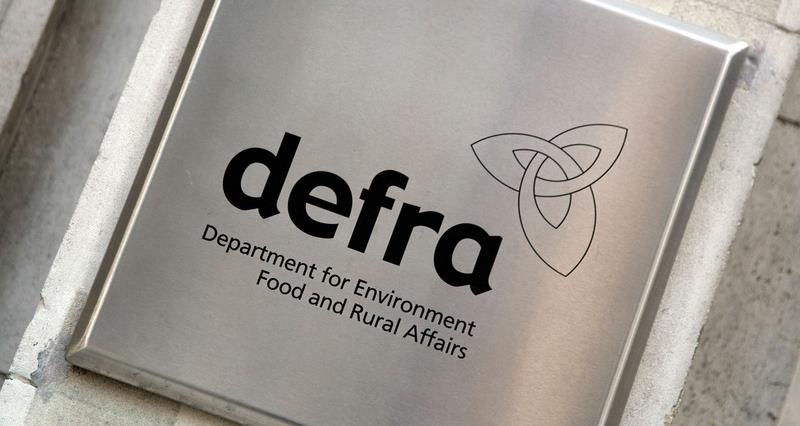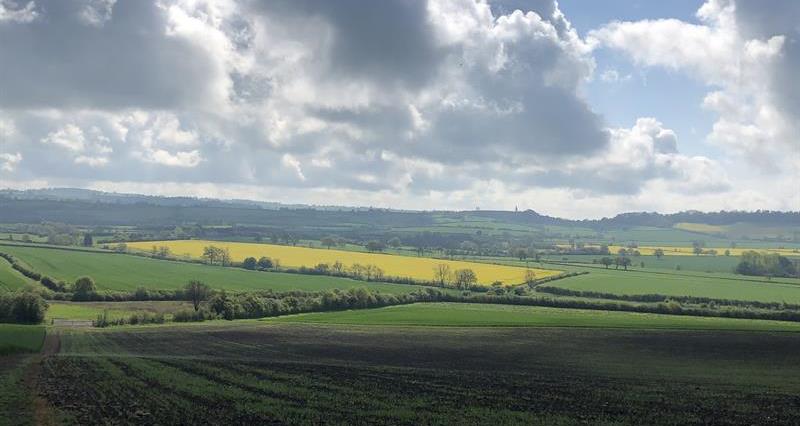Defra has outlined a high-level view of its funding from 2026–27 to 2027–28 on delinked payments, ELMs and other funding streams in addition to nature schemes.
Farming and nature recovery has been allocated an average £2.7 billion per year which has been committed to from 2026-27 until 2028-29, but within this there will be a £100 million cut to farming and countryside programmes.��
The farming and countryside programme funding makes up £2.3 billion of the £2.7 billion budget. This is down from the £2.4 billion per year committed to FCP between 2020/21 to 2024/25.
“Questions still remain about how farmers in England are going to deliver more for consumers with less, as investment in agriculture and nature recovery is combined.”
NFU President Tom Bradshaw
NFU President Tom Bradshaw said that while it was “positive” to see further detail from Defra on how the budget outlined in the spending review will be allocated, “questions still remain about how farmers in England are going to deliver more for consumers with less, as investment in agriculture and nature recovery is combined”.
More detail to come on ELMs
On ELMs, funding is set to rise to £2 billion by 2028/29 compared to the £1.8 billion earmarked in the Autumn 2024 budget. However, while Defra has said this represents a significant increase, the NFU has highlighted the comparison to the £800 million spent in 2023/24 on ELMs is misleading, as ELMs was not fully operational at that point, and de-linked payments absorbed a large share of funding.
Defra has confirmed more information on a reformed scheme for ELMs will be published later this summer.��
It has also committed to continue to invest in farmers' profitability, productivity and to strengthen farming businesses, both now and for the future via the existing grants, funding innovation and research through the Farming Innovation Programme, as well as advice and support services.
Delinked payments cuts
Defra also confirmed the delinked payments cuts in 2026 and 2027 (subject to parliamentary process) as follows:
- Apply a 98% reduction to the first £30,000 of any delinked payment
- Any amount above £30,000 will be reduced by 100%
- This results in a maximum payment of only £600, a further significant reduction from the £7,200 maximum payment available in 2025 following announcements made in the Autumn 2024 budget.��
- The RPA calculates the reductions using the farmer’s reference amount (based on average of BPS 2020-2022 and not the value of their 2025 payment). The RPA will write out to farmers in due course.
When direct payments were phased out, an assumption within the policy development was that the loss would be offset by farmers getting a proper return from environmental schemes as well an adjustment of land rents where that was a basis of land tenure – this isn’t happening.
Many farmers were shocked at the pace of the progressive reductions for the current year. These latest cuts, which will see no farmer receive more than £600 in delinked payment, will be seen by many as derisory.
�ʼһ���is clear that it does not support the progressive reduction of payments in this way. This, in addition to the planned changes to inheritance tax as set out in the Chancellor’s October Budget, severely risks investment in the future of UK food production.
NFU President Tom Bradshaw responded: “The increase in Defra’s Environmental Land Management schemes follows the rapid shift away from direct payments and will pay farmers for the public goods they deliver under these schemes. Farmers now urgently need clarity on the Sustainable Farming Incentive, which must be accessible to all farmers, to prevent ongoing cashflow pressures and ease a crisis of confidence.
“Continued investment in productivity and innovation is welcome. But to enable farmers to invest confidently in sustainability, the environment and animal health and welfare, we now need clear information on how these funds will be used.
“Farmers continue to sit at the heart of delivering the government’s ambitions, from boosting nature to ensuring food security. But it is also a long-term business and further clarity from Defra must reflect that.”



